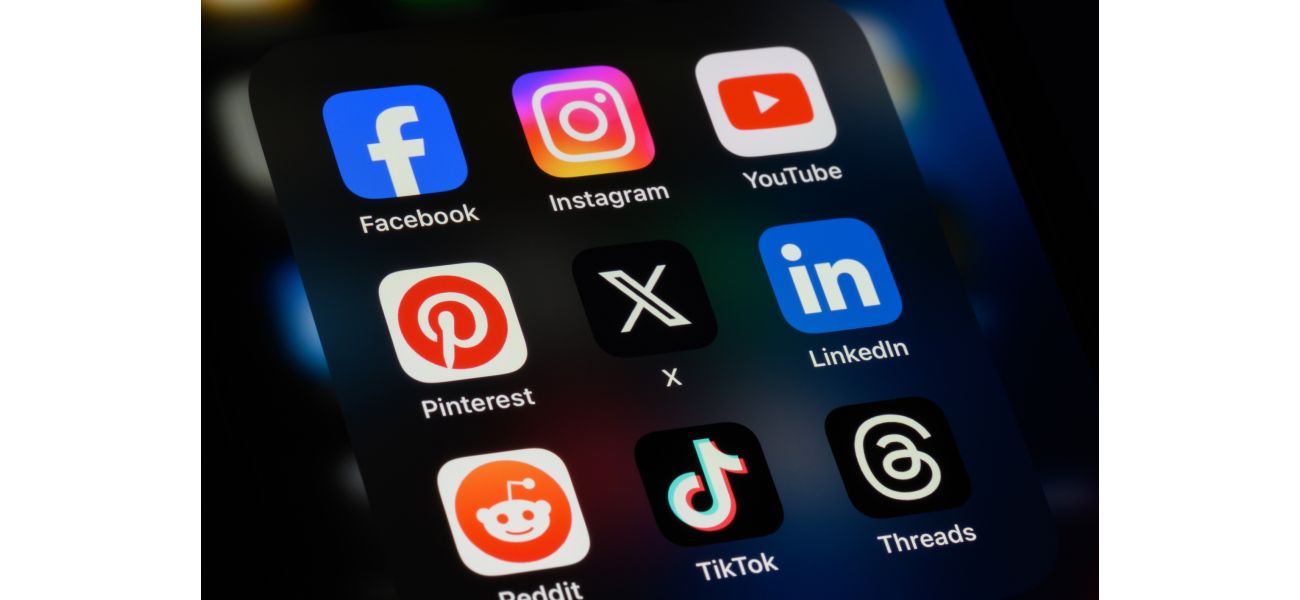Australian children unable to use social media due to criticism of ineffective discussion.
Over 30 bills were passed as senators debated late into the night following a hectic day of Labor negotiations with the Greens and Coalition.
November 28th 2024.

In a historic move, the Australian government has passed new laws that will ban children under the age of 16 from using social media. This decision was made on the last day of the Senate's sitting for the year, causing a whirlwind of debate and discussion among politicians.
While some members of the opposition and crossbench criticized the rushed and ill-considered nature of the ban, it was one of over 30 bills that were successfully passed. The bill does not specifically name any social media platforms, but Communications Minister Michelle Rowland has confirmed that popular apps such as TikTok, Facebook, Snapchat, Reddit, Instagram, and X will be affected.
One of the main concerns raised by Labor senator Jenny McAllister was the danger of algorithms promoting harmful content such as self-harm, eating disorders, and extremism to young users. She also emphasized the need for parental support, which is currently lacking from these platforms.
"It's impossible for the government to completely prevent young people from accessing harmful content, but we can certainly play a role in helping them," McAllister stated.
The government attempted to pass the social media ban along with three strict migration bills, but this move was met with resistance and ultimately failed. Many senators expressed their frustration at the limited time they had to thoroughly discuss and analyze such significant changes, especially since the restrictions won't be enforced for another 12 months.
Greens Senator Sarah Hanson-Young even went as far as to accuse the older generation of trying to control how the internet works for young people. She stated, "This is a sham of a legislation that does nothing to make social media safer for children and young people. The rushed process and lack of proper inquiry only add to its flaws, and it won't even take effect for another year."
Despite these criticisms, the Coalition eventually backed the bill after making some amendments. One major change was ensuring that no one would be required to use government identification or digital ID to prove their age, addressing concerns about privacy and data leaks.
Coalition education spokeswoman Sarah Henderson stressed the urgency of implementing these restrictions, citing the alarming rates of mental health issues among young people due to social media. She also acknowledged the bravery of parents such as Kelly O'Brien and Mat Howard, who lost their 12-year-old daughter Charlotte to suicide after years of online bullying.
"It is our responsibility as lawmakers to take action and make a positive change," Henderson said. "I have met with parents like Matt and Kelly, and their determination to raise awareness and bring about change is truly inspiring."
Despite the opposition's support, two Coalition senators crossed the floor to vote against the laws, criticizing the Labor government for their rushed approach. Senator Matt Canavan expressed concern that the ban may not effectively reduce the harm caused by social media, but the biggest issue for him was the disillusionment of young Australians with the political process.
"We have failed to involve the younger generation and denied them their voice in this important decision," Canavan stated.
After a lengthy debate, the legislation was finally passed after 11pm. Tech companies, who had advocated for a delay until after a trial of age-assurance technology, now have a year to make any necessary changes. In addition, the Coalition also supported the government on three migration bills, while the Greens made a deal with Labor to pass their Build to Rent housing package and Reserve Bank reforms.
If you or someone you know needs support, please reach out to Lifeline at 13 11 14 or Kids Helpline at 1800 55 1800, which are available 24/7. The passing of these laws is a step towards making social media a safer place for young people, but it is important to remember that help is always available for those who need it.
While some members of the opposition and crossbench criticized the rushed and ill-considered nature of the ban, it was one of over 30 bills that were successfully passed. The bill does not specifically name any social media platforms, but Communications Minister Michelle Rowland has confirmed that popular apps such as TikTok, Facebook, Snapchat, Reddit, Instagram, and X will be affected.
One of the main concerns raised by Labor senator Jenny McAllister was the danger of algorithms promoting harmful content such as self-harm, eating disorders, and extremism to young users. She also emphasized the need for parental support, which is currently lacking from these platforms.
"It's impossible for the government to completely prevent young people from accessing harmful content, but we can certainly play a role in helping them," McAllister stated.
The government attempted to pass the social media ban along with three strict migration bills, but this move was met with resistance and ultimately failed. Many senators expressed their frustration at the limited time they had to thoroughly discuss and analyze such significant changes, especially since the restrictions won't be enforced for another 12 months.
Greens Senator Sarah Hanson-Young even went as far as to accuse the older generation of trying to control how the internet works for young people. She stated, "This is a sham of a legislation that does nothing to make social media safer for children and young people. The rushed process and lack of proper inquiry only add to its flaws, and it won't even take effect for another year."
Despite these criticisms, the Coalition eventually backed the bill after making some amendments. One major change was ensuring that no one would be required to use government identification or digital ID to prove their age, addressing concerns about privacy and data leaks.
Coalition education spokeswoman Sarah Henderson stressed the urgency of implementing these restrictions, citing the alarming rates of mental health issues among young people due to social media. She also acknowledged the bravery of parents such as Kelly O'Brien and Mat Howard, who lost their 12-year-old daughter Charlotte to suicide after years of online bullying.
"It is our responsibility as lawmakers to take action and make a positive change," Henderson said. "I have met with parents like Matt and Kelly, and their determination to raise awareness and bring about change is truly inspiring."
Despite the opposition's support, two Coalition senators crossed the floor to vote against the laws, criticizing the Labor government for their rushed approach. Senator Matt Canavan expressed concern that the ban may not effectively reduce the harm caused by social media, but the biggest issue for him was the disillusionment of young Australians with the political process.
"We have failed to involve the younger generation and denied them their voice in this important decision," Canavan stated.
After a lengthy debate, the legislation was finally passed after 11pm. Tech companies, who had advocated for a delay until after a trial of age-assurance technology, now have a year to make any necessary changes. In addition, the Coalition also supported the government on three migration bills, while the Greens made a deal with Labor to pass their Build to Rent housing package and Reserve Bank reforms.
If you or someone you know needs support, please reach out to Lifeline at 13 11 14 or Kids Helpline at 1800 55 1800, which are available 24/7. The passing of these laws is a step towards making social media a safer place for young people, but it is important to remember that help is always available for those who need it.
[This article has been trending online recently and has been generated with AI. Your feed is customized.]
[Generative AI is experimental.]
0
0
Submit Comment





